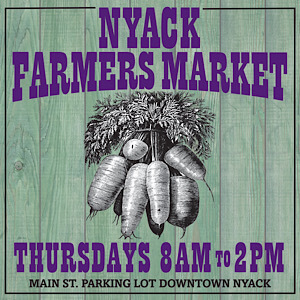
Franz Kafka, widely recognized by literary scholars and critics as one of the greatest writers of the twentieth century, never came to the United States. Yet, based on circumstances I will describe, he has a unique connection to Nyack.
All of Kafka’s great works, which include “The Metamorphosis,” “The Trial,” “The Castle,” “Amerika” and others, were written in German, as he was born into a German-speaking family in 1883 and lived most of his life in Prague, now capital of the Czech Republic, but then part of Austria-Hungary. At the time of Kafka’s death from tuberculosis in 1924 at the age of 40, a little more than 100 years ago, he was not well known because the vast majority of his works were not yet published.
In fact, Kafka had asked his closest friend and fellow writer, Max Brod, to burn all of his papers when he died. Had Brod obeyed, the world would have been deprived of Kafka’s indelible works, including “The Trial,” “The Castle” and “Amerika.” But Brod defied Kafka’s wishes and published them so that future generations could share in the agony, frustration, passion, and anxiety that was so artfully conveyed in Kafka’s literature.
Since Kafka never traveled to the United States, how can we explain his special connection to Nyack?
Of course, bookstores and libraries everywhere, including in Nyack and throughout the U.S., have English translations of Kafka’s novels, novellas and short stories. His works are taught in American high schools and colleges.
But Nyack’s connection with Kafka is unique in that it involves the author’s inner most thoughts and reflections.
Although he had a full-time job as an attorney working for an insurance company and wrote prolifically at night and on days when he didn’t need to be at work, Kafka also kept a personal diary. This diary and many other personal notes were among the papers he told Max Brod to destroy upon his death, which, of course, Brod did not.
As is often the case with personal diaries, Kafka’s was informal and filled with misspellings, repetition, starts and stops and passages that many would regard as personally embarrassing. But before publishing his diary, Brod revised the diary, converting its helter-skelter “fits and starts” quality to a more conventional narrative, and deleting salacious and other potentially embarrassing content, all of which resulted in a more readable but inaccurate and incomplete rendition of Kafka’s entries.
Until recently, the only English translation, released as a 1948-1949 version, was based entirely on Brod’s inaccurate recreation rather than what Kafka actually wrote.
All of that changed with the publication of a new complete and unexpurgated translation in January of 2023. This translation was written over an eight-year period by a young American man who sought to convey — as precisely as possible, in English — the words and thoughts expressed by Kafka in a diary the great author likely presumed no one would ever read after his death.
This translator first began to learn German during his junior-year spring semester abroad in Prague. His German education continued during his senior year at Vassar followed by a year on a Fulbright scholarship in Berlin, during which he became fluent in the language.
Over the course of the past fifteen years, his translations include Friedrich Holderlin’s Hyperion, Kevin Vennemann’s Close to Jedenew, Clemens J. Setz’s Indigo and Daniel Kehlmann’s Tyll and You Should Have Left. His translation of Franz Kafka’s diaries, replete with detailed notes explaining, and providing context for, many of Kafka’s entries, was met with critical acclaim, including in reviews that appeared in The New Yorker, The New York Times, The New York Review of Books, The Wall Street Journal, and other publications.
And so, before beginning to sound overly Kafkaesque, what exactly is Franz Kafka’s connection to Nyack?
The answer is that it is the little literary village on the Hudson is where the translator of the first accurate and complete translation of Kafka’s personal diaries lives and did most of his work and where, after many years of painstaking effort, overcoming some of the agony, frustration and despair that characterizes Kafka’s literature, he finalized the translation for publication.
He worked out of his home on Central Avenue North, his office on Main Street and the Nyack Public Library.
He took coffee breaks at Boxer Donut and Espresso Bar and obtained peer review, valuable comments and encouragement from David Means, a renowned author of novels and short stories who is also a Nyack resident.
After publication, the translator appeared for speaking engagements across the United States, overseas, and in Nyack, including a paperback launch this September at Big Red Books.
And, I should add, for the benefit of your perspective in evaluating the objectivity of this article, that the translator I speak of is my son, Ross Benjamin, who, with his wife Lauren and children, Aaron and Ruth, live a few blocks away from my wife Betsy and me in Nyack.
Editor’s note: For more information about Ross’s translation of Kafka’s diary and other works, attached is a link to his website: www.rossmbenjamin.com. The writer of this article, as already mentioned above, is Ross’ dad.








